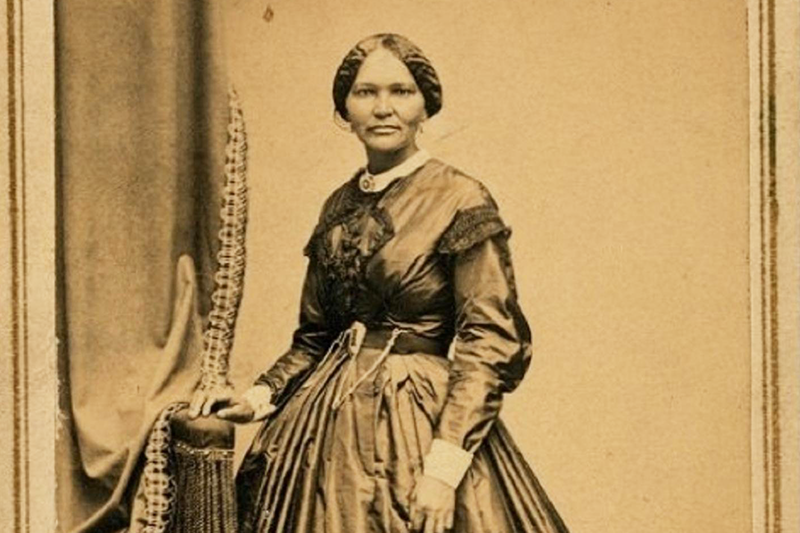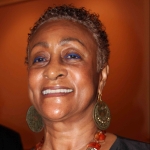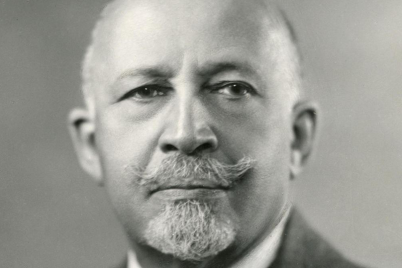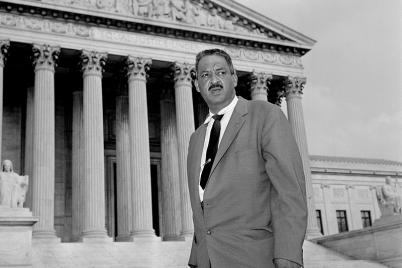By Attorney Jacqueline Hubbard, President, ASALH
People with little can give a lot in the spirit of selfless giving. One such person was Elizabeth Hobbs Keckley, an enslaved woman born to a slave master and one of his slaves in Virginia around 1818.
She learned to sew at the age of three. Upon maturity, she set up her own shop and was soon making dresses for the wives of Robert E. Lee and Jefferson Davis, among other powerful Southerners. After earning and saving $1,200 from sewing, she purchased her and her son’s freedom around 1852.
Once free, she and her son moved to Washington, D.C., where she became a famous and skilled dressmaker. Soon after Abraham Lincoln was elected President of the United States, she secured, as her principal client, Mary Todd Lincoln, President Lincoln’s wife. Keckley was very sympathetic to other former slaves, or “contraband” as they were often called, who fled to safety in Washington, D.C., during the Civil War.
The Contraband Relief Association, which Keckley founded and became president of in 1862, gathered money, shoes, clothing and other necessities for former slaves, many of whom were penniless. This idea took flight in Sept. 1862.
Keckley recounted in her 1868 memoir, “Behind the Scenes, or, Thirty Years a Slave, and Four Years in the White House,” that while working for the first lady, she left Washington, D.C., to travel to New York City.
“[Mary Todd Lincoln] requested me to follow her in a few days, and join her at the Metropolitan Hotel. I was glad of the opportunity to do so, for I thought that in New York I would be able to do something in the interests of our society. Armed with credentials, I took the train for New York, and went to the Metropolitan, where Mrs. Lincoln had secured accommodations for me.”
The next morning, Keckley told Mrs. Lincoln of her project and was immediately given $200. She was then called to Boston by Mrs. Lincoln where she met Wendell Phillips and other Boston philanthropists who gave her all the assistance in their power.
She held a large meeting at the black Baptist Church in Boston to raise money and helped organize a branch of the main society, which during the war, was able to send more than 80 large boxes of goods, contributed exclusively by black people in Boston.
The Metropolitan Hotel in New York at that time employed black workers. Keckley suggested the object of her mission to Robert Thompson, the hotel’s steward, who immediately raised quite a sum of money among the dining room waiters.
Frederick Douglass contributed $200 to the Contraband Relief Association besides lecturing for them. Other prominent black men sent in generous contributions and other necessities.
Keckley wrote in her autobiography, “If the white people can give festivals to raise funds for the relief of suffering soldiers,” she recalled thinking, “why should not the well-to-do colored people go to work to do something for the benefit of the suffering blacks?”
People from England also contributed to the Contraband Relief Association. President Lincoln and his wife continued to make frequent contributions. In 1863, Keckley was re-elected president of the association.
Nancy Wartik of The New York Times recently wrote Keckley’s obituary in the paper’s “Overlooked No More” series.
“The path that had led Keckly to become a first lady’s most trusted friend was almost unimaginable. She survived rape and years of beatings, going on to start her own business and eventually buying her way out of captivity. Then she earned a place as one of the reigning couturiers of high society in Washington.”
Attorney Jacqueline Hubbard graduated from the Boston University Law School. She is currently the president of the St. Petersburg Branch of the Association for the Study of African American Life and History, Inc.








